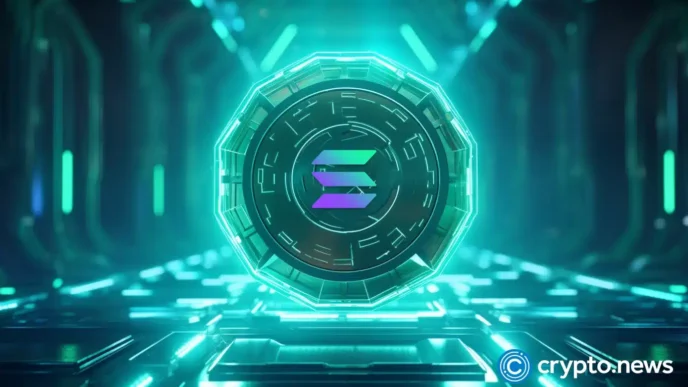[ad_1]
Disclosure: The views and opinions expressed here belong solely to the author and do not represent the views and opinions of crypto.news’ editorial.
The next megacycle in computing is Quantum. Quantum computing is transforming industries from AI, pharmaceutical, and automotive to aerospace, finance, telecommunication, and research, but the required infrastructure, such as massive cooling systems, specialized facilities, and costly hardware, makes it work with its limits and largely inaccessible for all but a select few. Quantum computing’s reliance on these exclusive setups restricts its benefits to a limited number of institutions, limiting its potential to solve today’s real-world problems at scale.
However, an alternative approach is emerging that greatly extends the benefits of quantum computing: decentralized quantum computing. By distributing computational tasks across decentralized networks, quantum computing can be made accessible to a wider range of industries without the costly setup required by traditional models.
Quantum computing’s accessibility challenge
Quantum computing is already making strides in solving complex problems and offers advantages in critical areas like speeding up drug discovery and repurposing existing drugs, enhancing cryptographic security, and accelerating machine learning in AI. However, while its capabilities are undeniable, accessing it remains a major hurdle for the majority of those who wish to apply such advanced technology.
At the root of this challenge lies quantum hardware itself. Quantum computers rely on qubits, which are the quantum equivalent of traditional computer bits. However, qubits are highly unstable and easily influenced by environmental factors, such as temperature fluctuations, electromagnetic interference, and vibrations. Keeping these quantum states stable typically requires cooling systems that bring temperatures close to absolute zero, far below what typical data centres can provide. This means that only a few institutions with the resources to establish and maintain these specialized environments can make use of quantum computing at scale.
The result is a paradox: quantum computing is seen as a transformative technology, but its realization is at the limit and is accessible to only a handful of players. This bottleneck limits quantum computing’s impact, holding back sectors that need advanced computing power to solve some of today’s most complex challenges, from climate modelling to breakthrough medical research. Yet, as demand for quantum solutions grows and the market is projected to expand from $1.3 billion in 2024 to $5.3 billion by 2029, it’s clear that industries urgently need a more accessible path to harnessing this technology.
Decentralization as a quantum alternative
A decentralized model for quantum computing sidesteps many of these challenges. Rather than relying on centralized hardware-intensive setups, it distributes computational tasks across a global network of nodes. This approach taps into existing resources—standard GPUs, laptops, and servers—without needing the extreme cooling or complex facilities required by traditional quantum hardware. Instead, this decentralized network forms a collective computational resource capable of solving real-world problems at scale using quantum techniques.
This decentralized Quantum-as-a-Service approach emulates the behaviors of quantum systems without strict hardware demands. By decentralizing the computational load, these networks achieve a comparable level of efficiency and speed to traditional quantum systems—without the same logistical and financial constraints.
Why decentralized quantum networks matter
Decentralized quantum computing offers several benefits, most notably in terms of accessibility, scalability, and energy efficiency.
1. Broadening access to advanced computing. A decentralized network opens the door to businesses, academics, researchers, and developers who might otherwise lack access to quantum-level computing power. This is a critical shift as smaller companies and independent developers are typically excluded from quantum computing by cost alone. Decentralization democratizes access, allowing industries that were once excluded from quantum computing to gain its benefits without the costly infrastructure.
2. Scalability across use cases. Decentralized quantum networks can respond to a variety of computational needs. This flexibility allows companies to scale their operations efficiently, handling complex tasks that traditional computing methods cannot handle. For instance, the automotive industry faces growing demands for advanced simulations in areas like autonomous driving, materials testing, and aerodynamic design—applications that require immense computational power. Quantum computing is projected to address these needs, with the automotive industry expecting a significant impact by 2025 and potential economic contributions between $2 billion and $3 billion by 2030. Decentralized networks make it possible to meet these industry demands without the conventional costs of quantum infrastructure.
3. Energy efficiency and cost-effective computing. Quantum computing’s energy consumption is difficult to overlook. With massive energy requirements to maintain cooling and stability, quantum computing can be both costly and environmentally taxing. In contrast, decentralized quantum computing leverages existing hardware, avoiding the high energy consumption of conventional quantum setups. This not only reduces costs but also offers an energy-efficient solution, aligning with broader environmental goals. As industries increasingly adopt decentralized approaches to scale their computational power sustainably, these networks could generate substantial economic value—up to $850 billion by 2040—by providing efficient, accessible solutions across sectors.
Challenges and considerations
While the potential benefits of decentralized quantum networks are significant, they aren’t without obstacles. One of the primary concerns is security. Decentralized networks, by nature, distribute computational tasks across numerous nodes, creating data security and integrity challenges. Encryption advances and secure protocols are essential to mitigate these risks, especially for industries dealing with sensitive information.
Decentralized quantum computing represents a transformative shift in how we approach advanced problem-solving. By leveraging accessible infrastructure and distributing tasks across a global network, powerful computing is brought within reach of many who were previously excluded. Rather than remaining an exclusive tool for elite institutions, advanced computing can become an accessible resource for businesses, academics, researchers, and industries worldwide.
As we move further into the digital age and the demands of big data and complex simulations grow, decentralized quantum computing provides a pragmatic, energy-efficient alternative to traditional quantum setups. We’re on the brink of a new megacycle, where quantum computing won’t be a rare resource but a widely accessible one—paving the way for broader innovation and the democratization of computational breakthroughs.
[ad_2]















